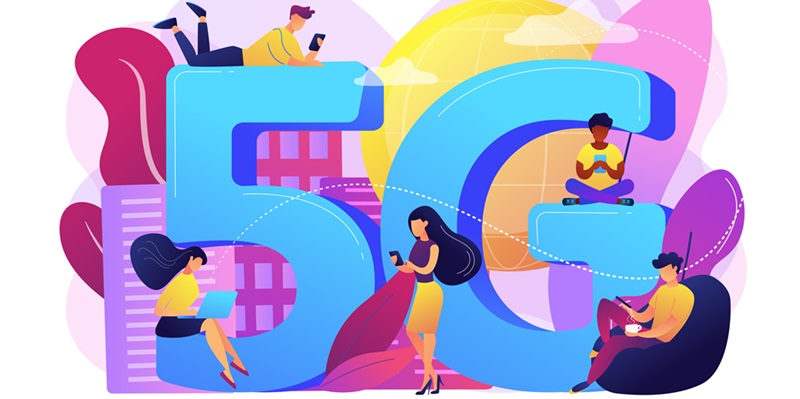5G technology, distinguished by its faster data speeds, reduced latency, greater capacity, and increased reliability, is poised to revolutionize the digital communication landscape. By 2025, global 5G connections are projected to reach 1.8 billion, emphasizing the widespread impact this technology will have, particularly in marketing and advertising.
5G: A Quantum Leap in Mobile Network Performance
5G technology represents a significant enhancement over previous mobile network generations, with data speeds up to 100 times faster than 4G LTE and latency as low as 1 millisecond. This leap in performance enables high-definition content uploads and downloads, real-time device communication, and supports a higher density of connected devices, making it especially suitable for urban areas and the proliferation of the Internet of Things (IoT).
The global rollout of 5G is expanding rapidly, especially in North America, Asia-Pacific, and Europe. Both developed and emerging markets are investing heavily in 5G infrastructure, which is expected to create a solid foundation for innovative services and solutions across various sectors, most notably in marketing and advertising.
Enhancing Marketing with 5G Capabilities
For marketers, the benefits of 5G are numerous, allowing for richer multimedia content, including high-definition videos, augmented reality (AR), and virtual reality (VR) experiences, which enhance customer engagement. Real-time interactions will become more feasible, enabling marketers to provide contextually relevant and timely communications. Additionally, the improved capacity for data management will enable more accurate audience targeting and personalization, significantly boosting the efficacy of omnichannel integration.
Experts from the Forbes Agency Council forecast that 5G will bring about real-time, hyper-realistic personalization, enhancing both user experience and load times. It will also improve communication, facilitate online-to-offline purchasing, provide richer multimedia content for smartphones, and enhance transaction-friendly mobile commerce. With greater participation and data-gathering capabilities, brands will obtain deeper insights, allowing for more personalized marketing endeavors.
Revolutionizing Advertising with 5G
5G technology is expected to revolutionize advertising by enabling superior video quality, facilitating interactive and customized content, and promoting the use of AR and VR in marketing strategies. With the significant increase in IoT devices, marketers will discover new touchpoints for targeted advertising, such as smart homes and wearable technology. Programmatic advertising will also evolve, with reduced latency and faster data enabling more precise targeting and personalized ads.
Despite these advantages, several drawbacks are acknowledged in the implementation of 5G in marketing and advertising. High infrastructure costs, data privacy concerns, skill gaps, susceptibility to cyberattacks, challenges in technological integration, and signal obstruction by physical barriers pose significant challenges. Managing multiple virtual networks and implementing extensive security measures adds to this complexity.
The Future: Integrating 5G with AI and IoT
5G technology, characterized by its significantly faster data speeds, lower latency, enhanced capacity, and improved reliability, is set to revolutionize the realm of digital communication. This next-generation technology offers transformative potential across various sectors, notably marketing and advertising. By offering more seamless and efficient experiences, 5G can facilitate more interactive and personalized advertising models, pushing the boundaries of what’s possible. High-definition video content, augmented reality (AR), and virtual reality (VR) advertisements will become more accessible and widespread, creating more engaging and immersive experiences for consumers. Additionally, 5G’s ability to handle massive amounts of data will enable marketers to gain deeper insights into consumer behavior, allowing for highly targeted and effective campaigns. The massive scalability and increased capacity of 5G networks will also support a more extensive array of Internet of Things (IoT) devices, providing more touchpoints for consumer interaction. With global 5G connections expected to hit 1.8 billion by 2025, the ripple effects on marketing strategies and consumer engagement will be profound, setting the stage for a new era in digital advertising.

